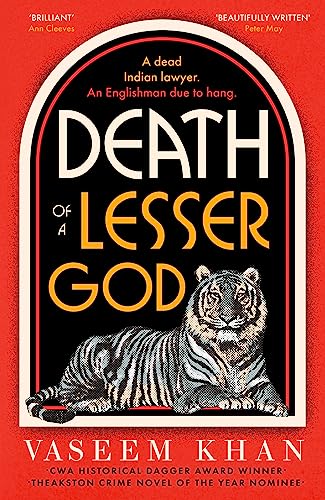Why a Booktrail?
1950: Can a white man receive justice in post-colonial India?

1950: Can a white man receive justice in post-colonial India?
James Whitby, sentenced to death for the murder of prominent lawyer and former Quit India activist Fareed Mazumdar, is less than two weeks from a date with the gallows. In a last-ditch attempt to save his son, Whitby’s father forces a new investigation into the killing.
The investigation leads Inspector Persis Wadia of the Bombay Police to the old colonial capital of Calcutta, where, with the help of Scotland Yard criminalist Archie Blackfinch, she uncovers a possible link to a second case, the brutal murder of an African-American G.I. during the Calcutta Killings of 1946.
Are the cases connected? And if Whitby didn’t murder Mazumdar, then who did?
Calcutta and the killings of 1946
“The British in India believed themselves a race of gods – lesser gods, but gods nonetheless. They consider their fall to be against the natural order of things.”
This is a great and insightful look into the India that was emerging at the time. Since independance it has gone through some very tough times and partition has caused more divides than the obvious. There is religious fighting and now people are killing within their own caste and religion. Even in the higher echelons of society, the problems get more and more complex as the police and politicians are accompanied by corruption all the way.
The Calcutta Killings of 1946.
The Great Calcutta Killings of 1946 were four days of massive Hindu-Muslim riots in the capital of Bengal, India, that resulted in thousands of deaths and injuries.
Destination: Calcutta, Bombay Author/guide: Vaseem Khan Departure Time: 1950s
Back to Results1910. 1970s :In the middle of a severe storm two sisters rescue a mysterious man from a shipwreck.
Read more